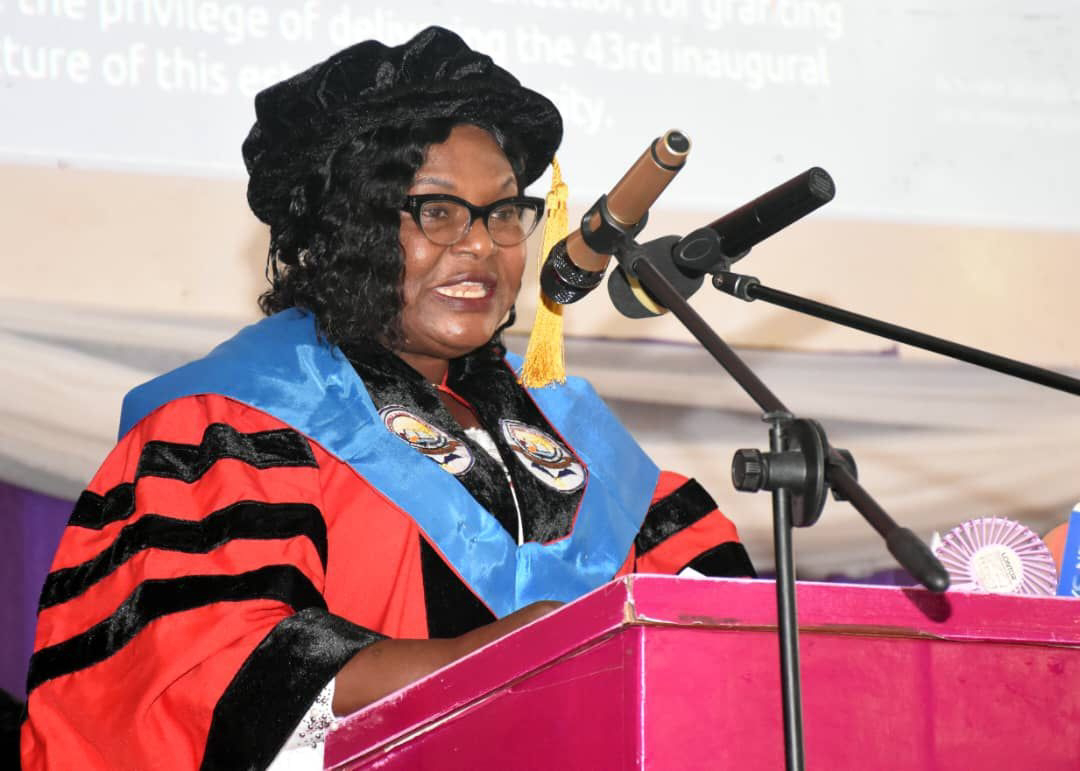Olubunmi Omoniyi, a professor of Science Education and Curriculum Studies, has urged educators and policymakers to adopt transformative teaching strategies that recognize and nurture the unique potential in every student.
Prof. Omoniyi stated this on Tuesday, July 15,2025, while delivering the 43rd Inaugural Lecture of Adekunle Ajasin University, Akungba Akoko, titled. "A Science Classroom Where Everyone is a Genius: Management through Phenomenological Methodology",
The Professor, who drew from decades of experience in teaching Chemistry across secondary schools and tertiary institutions, declared: A classroom where everyone is a genius is not a dream. It is a possibility waiting to be unlocked with the right methods.
She emphasized that learning environments should move beyond rote memorization to become vibrant spaces where students explore, experiment, and innovate.
Omoniyi recounted her Ph.D. research, which employed an activity-based learning cycle in teaching difficult chemistry topics like electrolysis and thermodynamics. The outcome was profound, she recalled. All 60 students I taught passed at different paces, yes, but none was left behind. That was the moment I realized: there are no dullards, only untapped genius.
She identified the phenomenological methodology as a key to unlocking such brilliance. This student-centered approach considers learners unique experiences, abilities, and learning paces while emphasizing classroom management as the bedrock for effective delivery. Citing her own findings and studies by others, Omoniyi stated that Good classroom management, when combined with strategic pedagogical methods, turns classrooms into workshops of brilliance.
Prof. Omoniyi, who pinpointed underfunded laboratories, unqualified science teachers, outdated curricula, and a reliance on foreign teaching frameworks unsuited to Nigerian learners as current challenges facing science education in Nigeria, called for innovative teaching strategies for teachers to adopt inquiry-based and constructivist approaches such as the Learning Cycle Method, Scaffolding, and Vee Mapping to encourage deeper understanding and curiosity.
She noted the urgent need for science educators to undergo pedagogical training, stressing that subject mastery without teaching skill is inadequate, while calling on parents to nurture scientific curiosity early by providing stimulating materials like puzzles and science kits.
Omoniyi emphasised, Many of our science teachers and lecturers lack professional qualifications in teaching. While they may have mastery of their subject matter, they often lack the pedagogical skills required to make science engaging and accessible. Teacher training programs must emphasize the how of teaching science.
Parents and guardians play a crucial role in fostering a love for science from an early age. Providing toys, puzzles, and other materials that spark curiosity can lay a solid foundation for future interest in science.
The Inaugural Lecturer added that governments must invest significantly in equipping science laboratories to accommodate the growing interest in science disciplines. She said, Government support is essential to equip laboratories with modern facilities. As students' enrollment in science courses increases, these spaces must be prepared to accommodate and inspire young scientists.
She argued for support for indigenous authors, saying, Indigenous authors should be encouraged and funded to produce textbooks that address the specific needs of Nigerian students and society. These books should be affordable and accessible, ensuring that every student can benefit from them.
She also called for curriculum reform that would align with national development goals and learner realities to enhance engagement and applicability.
“Curriculum planners should prioritize integrating topics that align with the realities and aspirations of learners and society. A relevant curriculum ensures that students can see the practical applications of their education. There are some private schools in Nigeria using British Curriculum which is not relevant to the needs of the learner and the society, she said.
Prof. Omoniyi appealed to stakeholders in education, including policymakers, teachers and parents to embrace the mission of uncovering the genius in every child. It is our shared duty to discover, nurture, and celebrate the brilliance within each learner. Let us rise to this challenge.
In his Opening Remarks, the Vice Chancellor, and Chairman on the occasion, Prof. Olugbenga Ige, had lauded the Inaugural Lecturer for her dedication to scholarship, contributions to knowledge, especially in the field of science education, and service to humanity.






Post a Comment